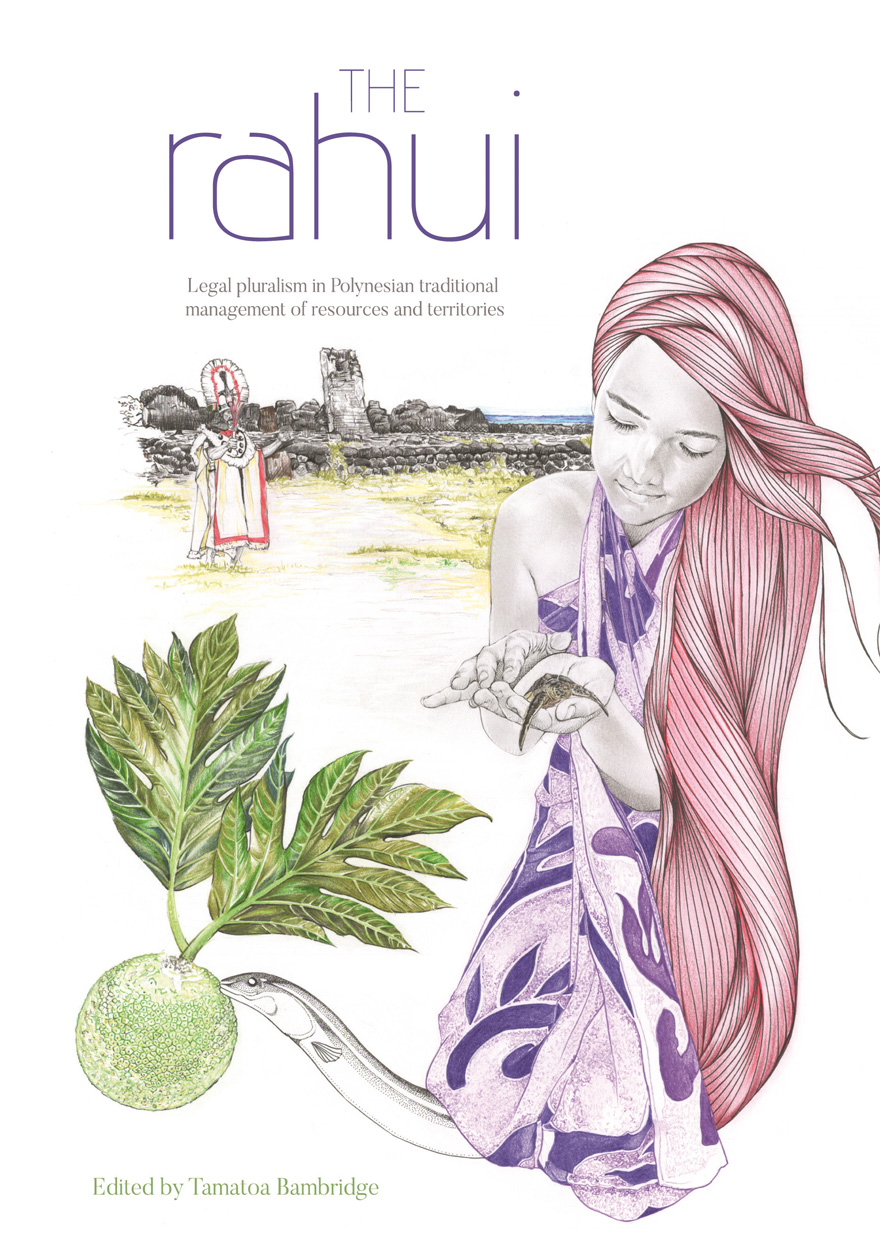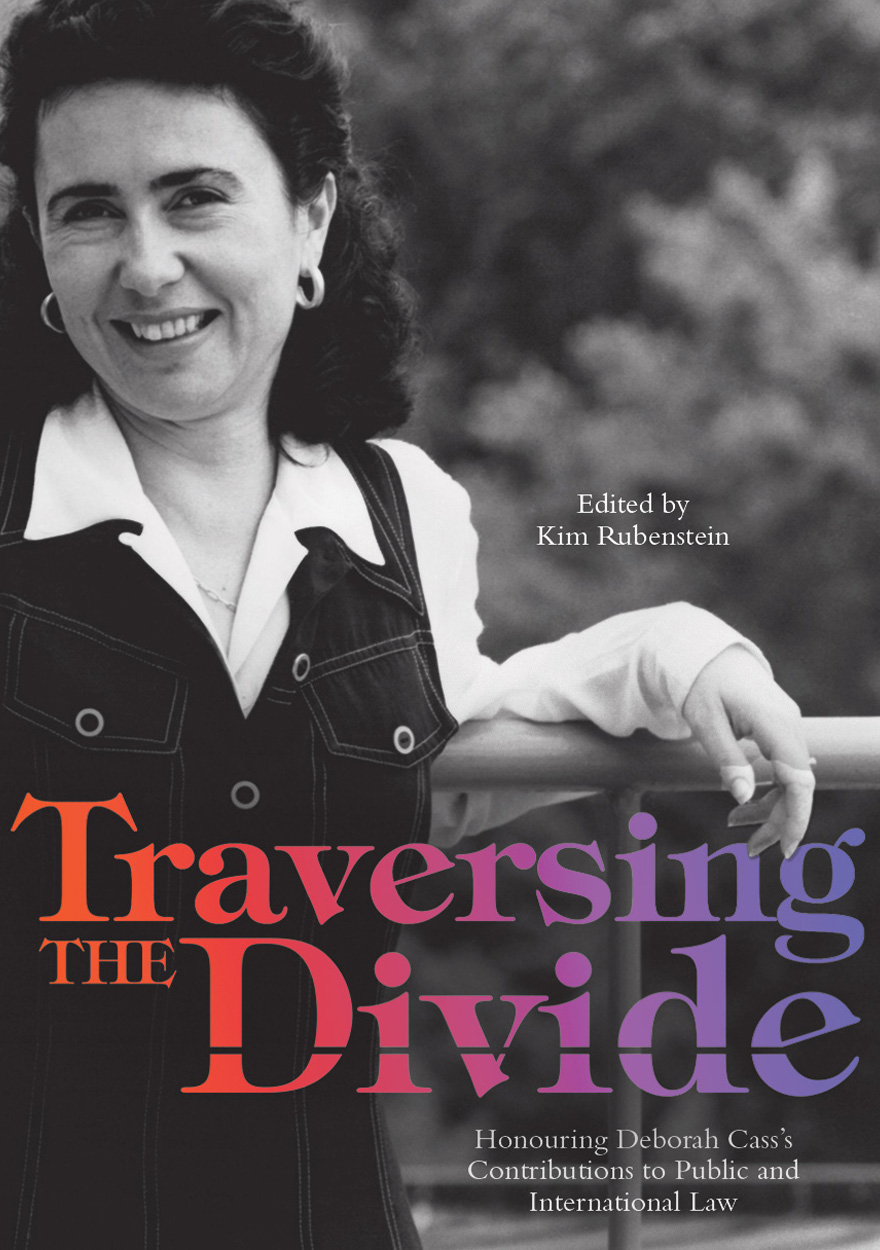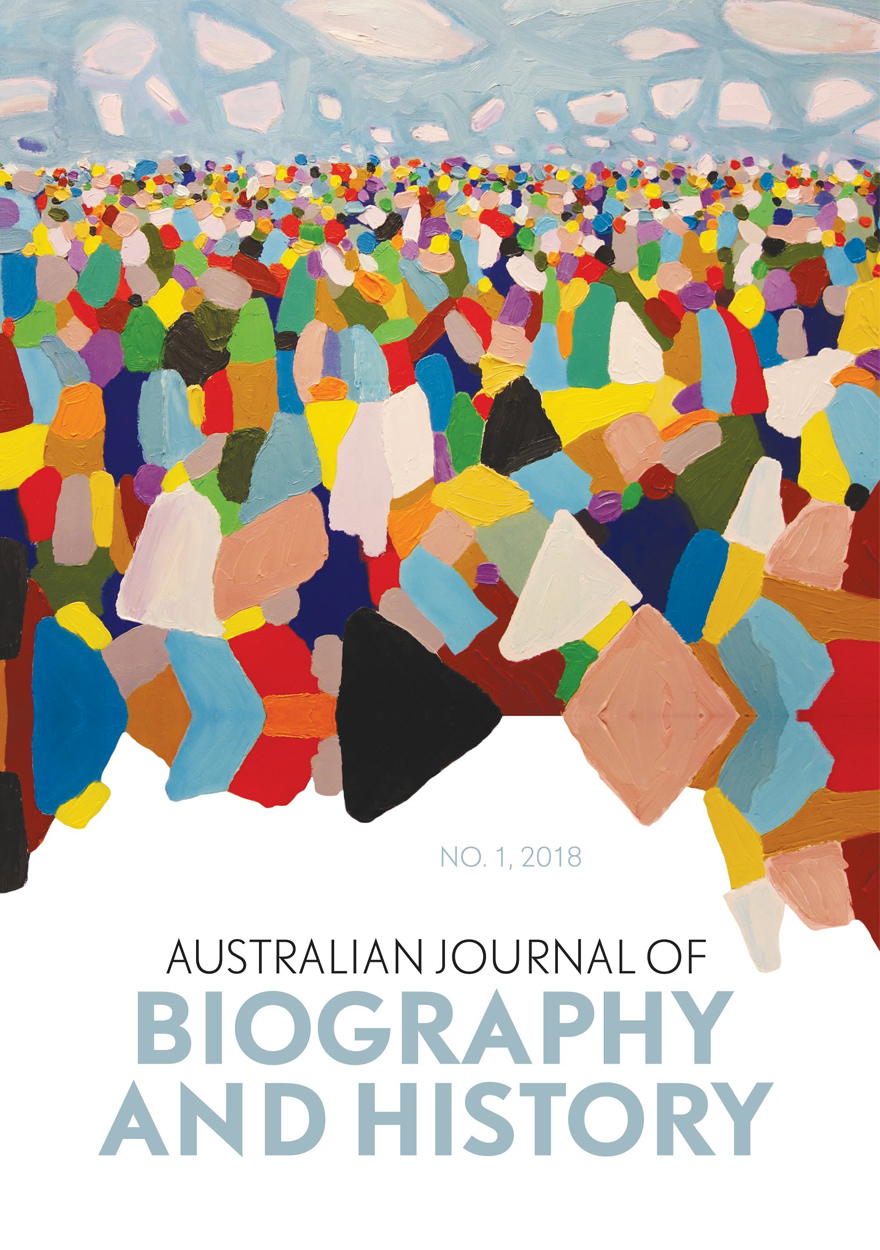Search titles
Displaying results 11 to 20 of 129.

Subjects and Aliens »
Histories of Nationality, Law and Belonging in Australia and New Zealand
Edited by: Kate Bagnall, Peter Prince
Publication date: August 2023
Subjects and Aliens confronts the problematic history of belonging in Australia and New Zealand. In both countries, race has often been more important than the law in determining who is considered ‘one of us’.
Each chapter in the collection highlights the lived experiences of people who negotiated laws and policies relating to nationality and citizenship rights in twentieth-century Australasia, including Chinese Australians enlisting during the First World War, Dalmatian gum-diggers turned farmers in New Zealand, Indians in 1920s Australia arguing for their citizenship rights, and Australian women who lost their nationality after marrying non-British subjects.
The book also considers how the legal belonging—and accompanying rights and protections—of First Nations people has been denied, despite the High Court of Australia’s recent assertion (in the landmark Love & Thoms case of 2020) that Aboriginal people have never been considered ‘aliens’ or ‘foreigners’ since 1788. The experiences of world-famous artist Albert Namatjira, and of those made to apply for ‘certificates of citizenship’ under Western Australian law, suggest otherwise.
Subjects and Aliens demonstrates how people who legally belonged were denied rights and protections as citizens through the actions of those who created, administered and interpreted the law across the twentieth century, and how the legal ramifications of those actions can still be felt today.

From Borders to Pathways »
Innovations and Regressions in the Movement of People into Europe
Edited by: Matthew Zagor
Publication date: September 2024
From Borders to Pathways: Innovations and Regressions in the Movement of People into Europe examines the evolution of European migration policy, offering a forward-looking analysis that extends beyond traditional border controls to innovative legal migration pathways. Contributors provide an in-depth exploration of the drivers shaping migration policies, including public opinion and the rise of populist discourses, the contrasting responses to various real and imagined migrant crises, and critiques of recent policy innovations such as refugee finance schemes, ‘safe legal pathways’, and migrant lotteries. Through interdisciplinary perspectives, the authors assess socio-political, legal, geo-political and cultural shifts to advocate for a more inclusive, humane and sustainable approach to migration. By challenging dominant narratives of deterrence, extraterritoriality and exclusion, this book advocates for policies that balance Europe’s myriad commitments, values and imperatives, highlighting the need for ethical frameworks that respect the dignity of migrants. Essential reading for policymakers, scholars and stakeholders, From Borders to Pathways offers a comprehensive reflection on the complexities of migration in Europe, signalling a paradigm shift towards cooperation, inclusivity, and shared responsibility in global mobility.

Deeper, Strategic Collaboration in the Securities Sector »
India and Australia
Authored by: Sonia Khosa
Publication date: 2025
Winner of ANU Press ECR Prize in Legal Scholarship
In an era of globalised finance and increasing cross-border activity, regulatory cooperation has become essential for market integrity and development. This book examines the potential for strategic collaboration between India and Australia in the securities sector—two nations with distinct but complementary economic and legal frameworks. Through a comparative analysis of the Securities and Exchange Board of India (SEBI) and the Australian Securities and Investments Commission (ASIC), it evaluates alignment with International Organization of Securities Commissions (IOSCO) principles, focusing on supervisory powers, enforcement mechanisms and compliance effectiveness. The analysis identifies shared regulatory goals and governance principles, highlighting opportunities for bilateral cooperation.
Offering a roadmap for capital market integration and regulatory innovation, the book makes a timely contribution to international financial scholarship. It delivers practical insights for policymakers, legal scholars and regulators interested in forging resilient cross-border partnerships—both within the Indo-Pacific and beyond.
Coming soon
Notify me
Name, Shame and Blame »
Criminalising Consensual Sex in Papua New Guinea
Authored by: Christine Stewart
Publication date: December 2014
Papua New Guinea is one of the many former British Commonwealth colonies which maintain the criminalisation of the sexual activities of two groups, despite the fact that the sex takes place between consenting adults in private: sellers of sex and males who have sex with males. The English common law system was imposed on the colonies with little regard for the social regulation and belief systems of the colonised, and in most instances, was retained and developed post-Independence, regardless of the infringements of human rights involved.
Now the HIV pandemic has thrown a spotlight, not altogether welcome, on the sexual activities of these two groups. In Papua New Guinea, a growing body of behavioural research has focused on such matters as individual sexual partnering, condom use and awareness of HIV. My work, however, has a different purpose. I chose the terms in the title to highlight a nexus which I believe exists between the criminal law and negative attitudes of society. At an international level, the argument has been put that decriminalising sex work and sodomy will facilitate HIV epidemic management, reducing the stigma and discrimination these groups encounter and making them easier to reach. I undertook my research therefore with the aim of gaining deeper understanding of the effects the current situation of criminalisation might have on the social lives of these criminalised people today, in the country generally and in Port Moresby the capital in particular, and whether these effects might provide evidence to support the argument for law reform.
This is a rich and well-researched study of the legal, social and moral issues surrounding the criminalisation of two forms of consensual sex…. A very impressive piece of work, it is extensively documented, relies on a wide range of material and makes a clear and coherent argument about the place of law in producing identities and exclusions…. The attention to change over time and the complexity of the ways in which sexual behaviour is enacted and punished is a particular strength of the book.
—Professor Sally Engle Merry, Anthropology, Law and Society, New York University
This book is an exceptional contribution to our knowledge of the nexus between the criminal law and negative attitudes of society, and what effects criminalization has on the social lives of prostitutes and males who have sex with males, and whether these effects might provide evidence to support the argument for law reform…. The author’s experience of Papua New Guinea allows her to comment in depth on such matters as the United Nations’ human rights approach to the HIV epidemic and their call to decriminalize all sexual acts between consenting adults…. She shows that criminal laws—with the help of the normative discourse of religion and media—underpin and legitimize high levels of stigma, discrimination and abuse of prostitutes and males who have sex with males…. The quality of the writing and general presentation are exceptional.
—Laura Zimmer-Tamakoshi, Truman State University (retired)

The Rahui »
Legal pluralism in Polynesian traditional management of resources and territories
Edited by: Tamatoa Bambridge
Publication date: March 2016
This collection deals with an ancient institution in Eastern Polynesia called the rahui, a form of restricting access to resources and/or territories.
While tapu had been extensively discussed in the scientific literature on Oceanian anthropology, the rahui is quite absent from secondary modern literature. This situation is all the more problematic because individual actors, societies, and states in the Pacific are readapting such concepts to their current needs, such as environment regulation or cultural legitimacy. This book assembles a comprehensive collection of current works on the rahui from a legal pluralism perspective. This study as a whole underlines the new assertion of identity that has flowed from the cultural dimension of the rahui. Today, rahui have become a means for indigenous communities to be fully recognised on a political level. Some indigenous communities choose to restore the rahui in order to preserve political control of their territory or, in some cases, to get it back. For the state, better control of the rahui represents a way of asserting its legitimacy and its sovereignty, in the face of this reassertion by indigenous communities.

Australian Native Title Anthropology »
Strategic practice, the law and the state
Authored by: Kingsley Palmer
Publication date: May 2018
The Australian Federal Native Title Act 1993 marked a revolution in the recognition of the rights of Australia’s Indigenous peoples. The legislation established a means whereby Indigenous Australians could make application to the Federal Court for the recognition of their rights to traditional country. The fiction that Australia was terra nullius (or ‘void country’), which had prevailed since European settlement, was overturned. The ensuing legal cases, mediated resolutions and agreements made within the terms of the Native Title Act quickly proved the importance of having sound, scholarly and well-researched anthropology conducted with claimants so that the fundamentals of the claims made could be properly established. In turn, this meant that those opposing the claims would also benefit from anthropological expertise.
This is a book about the practical aspects of anthropology that are relevant to the exercise of the discipline within the native title context. The engagement of anthropology with legal process, determined by federal legislation, raises significant practical as well as ethical issues that are explored in this book. It will be of interest to all involved in the native title process, including anthropologists and other researchers, lawyers and judges, as well as those who manage the claim process. It will also be relevant to all who seek to explore the role of anthropology in relation to Indigenous rights, legislation and the state.

Traversing the Divide »
Honouring Deborah Cass’s Contributions to Public and International Law
Edited by: Kim Rubenstein
Publication date: March 2021
‘While devoting fine attention to the stuff of everyday life, Deborah Cass was also a brilliant scholar. Although the deep sense of loss and sadness at Deborah’s death remains, it is wonderful to have her writings as a continuing source of inspiration and consolation. In them, we continue to hear Deborah’s firm, clear voice, her appreciation of language, her seriousness, her curiosity, her sensitivity and her wry humour.’
—Professor Hilary Charlesworth
This collection honours the work of Deborah Cass, 15 February 1960 – 4 June 2013, a brilliant Australian constitutional and international lawyer. Deborah studied at the University of Melbourne and Harvard Law School and taught at Melbourne Law School, The Australian National University and the London School of Economics. A member of The Australian National University’s Centre for International and Public Law from 1993 to 2000, Deborah’s work offered illuminating new perspectives in a range of fields, from the right to self-determination, critical international legal theory, and feminist legal theory to the international trade law system. The title of this edited collection draws on one of her articles, ‘Traversing the Divide: International Law and Australian Constitutional Law’ (1998) 20 Adelaide Law Review 73. This book evolves from a symposium held to draw together academics from around the globe to reflect on Deborah’s extensive scholarship and contributions to public law and international law, and to examine how her work is of value to current domestic and international law issues. The pieces selected for this volume both remind us of Deborah’s outstanding academic career and provide important insights on current public law and international law pressing issues.

Australian Journal of Biography and History: No. 1, 2018 »
Publication date: December 2018
In this first issue, a diverse range of essays primarily relates to questions of individuals and the contexts in which they functioned, the ‘middle ground’ between a life and the times. Four of them concern Australian women who operated and negotiated various fields of endeavour, only one of which—the role of headmistress of a girls’ school—was unambiguously a woman’s domain. The profile of Miss Annie Hughston (1859–1943) shows how a strong figure could have a disproportionate influence on women entering male bastions. Similarly, Nancy Atkinson, a pioneering bacteriologist at the University of Adelaide, was not only a scientific researcher of note but a teacher of generations of graduate students. Yet when the chair in her field finally became available, she was overlooked in favour of a male English import, despite having acted in the role for many years. She was valued it seems more for her teaching than her research, a classic tendency to ascribe to women in scientific circles a nurturing rather than a knowledge-creating function. Jean Andruana Jimmy (1912–1991), a Yupngayth woman from Mapoon in north Queensland, also became prominent in community leadership and land rights activism, areas that had been assumed to be male spheres. Yet leading her community was by no means as revolutionary as was often assumed by outside European observers, for Andruana saw herself resuming a role that was entirely consistent with women’s responsibilities. Sophie Scott-Brown’s portrait of the playwright and director Eunice Hangar examines the nature of reading as ‘a simultaneously social and individualistic activity’ and its implications for understanding the way Australians have read English writers.
The article on the nineteenth-century journalist and gold commissioner Fredrick Dalton explores the potential of nineteenth-century mobilities in the formation of identity. Karen Fox explores how family history, in this case the Stephen and Street ‘legal dynasty’, can illuminate an understanding of legal and power relations in a geographic setting. The article on André Kostermans, a renowned Dutch Indonesian botanist, is also on one level a story of shifting identity. Born in the Dutch East Indies, and trained in botany in Holland, Kostermans was interned by the Japanese during World War II, and used his skills to supplement the diet of his fellow prisoners of war, and to develop a ‘bush’ procedure for producing surgical-grade alcohol, actions that undoubtedly saved the lives of many. After the war, his career was almost ruined by the Indonesian government’s response to his homosexuality. In the final essay, the University of Xian scholar Tiping Su discusses the problem of the ‘missing’ Chinese in the Australian Dictionary of Biography, explaining the various issues in identifying and historicising the many Chinese who sojourned in Australia, as well as those who stayed.
Download for free
Not available for purchase

Humanities Research: Volume XIV. No. 2. 2007 »
Pain and Death: Politics, Aesthetics, Legalities
Edited by: Carolyn Strange
Publication date: August 2007
Humanities Research is an internationally peer-reviewed journal published by the Research School of Humanities at The Australian National University. The Research School of Humanities came into existence in January 2007 and consists of the Humanities Research Centre, Centre for Cross-Cultural Research, National Europe Centre and Australian National Dictionary Centre. Launched in 1997, issues are thematic with guest editors and address important and timely topics across all branches of the humanities.
While politics and law may set the boundaries of sanctioned violence within and between states, their understanding and meanings are invariably conditioned by aesthetic questions. Inspired in part by the early phase of the so-called war on terror, when pictures of the penal excesses it unleashed initially created embarrassment and shame, the conference incorporated the work of scholars, artists and performers. This volume’s contributors move beyond the specifics of the war on terror to consider other instances in which officially legitimated violence has been invoked, contested or suppressed, not only through legal and political means, and in official records, but also in popular media and art forms.
Download for free
Not available for purchase

Grassroots Law in Papua New Guinea »
Edited by: Melissa Demian
Publication date: December 2023
The introduction of village courts in Papua New Guinea in 1975 was an ambitious experiment in providing semi-formal legal access to the country’s overwhelmingly rural population. Nearly 50 years later, the enthusiastic adoption of these courts has had a number of ramifications, some of them unanticipated. Arguably, the village courts have developed and are working exactly as they were supposed to do, adapted by local communities to modes and styles consistent with their own dispute management sensibilities. But with little in the way of state oversight or support, most village courts have become, of necessity, nearly autonomous.
Village courts have also become the blueprint for other modes of dispute management. They overlap with other sources of authority, so the line between what does and does not constitute a ‘court’ is now indistinct in many parts of the country. Rather than casting this issue as a problem for legal development, the contributors to Grassroots Law in Papua New Guinea ask how, under conditions of state withdrawal, people seek to retain an understanding of law that holds out some promise of either keeping the attention of the state or reproducing the state’s authority.



